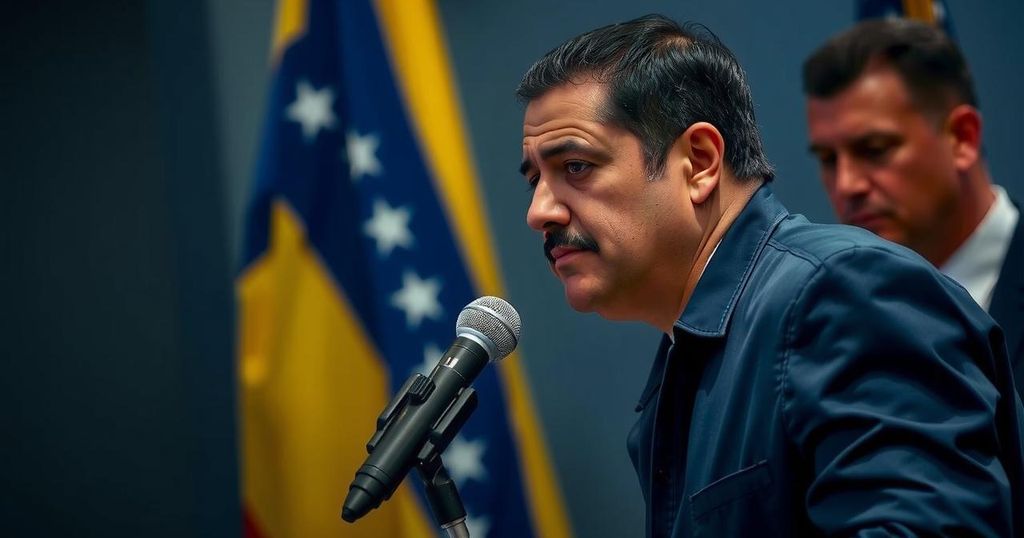The United States has imposed sanctions on 21 allies of President Maduro, citing repression after July’s disputed presidential election. High-ranking officials are targeted along with previous sanctions against Maduro allies. Meanwhile, the Biden administration recognizes Edmundo González as the president-elect, reflecting ongoing political tensions in Venezuela, while legislators consider a bill against sanctions.
The United States has expanded its sanctions against the Venezuelan regime by targeting an additional 21 associates of President Nicolás Maduro. These measures are a response to actions taken by Maduro and his government following the contentious presidential election held in July. The sanctioned individuals include high-ranking officials within Venezuela’s security and intelligence sectors, as well as members of Maduro’s cabinet, enhancing the previous sanctions applied against additional Maduro supporters last September.
In addition to the sanctions, the Biden administration officially recognized Edmundo González, a candidate from the Venezuelan opposition, as the country’s “president-elect.” This recognition underscores the ongoing political turmoil in Venezuela, characterized by claims of electoral fraud and human rights violations. Meanwhile, Maduro’s government continues to evade transparency regarding the election results, claiming a victory without substantiating it with credible vote counts.
González, who left Venezuela for Spain following legal pressures against him, asserts that he won the election decisively. The previous sanctions imposed on Maduro’s allies focused on obstructing the electoral process and committing alleged human rights abuses. The effectiveness of the recent sanctions remains uncertain as loyalists to Maduro maintain substantial control over government functions.
In response to the escalating situation, Venezuelan lawmakers are considering legislation that would classify economic sanctions as crimes against humanity, potentially allowing prosecution for individuals who advocate for such measures. This legislative move indicates a heightened tension within the country surrounding the continued international response to the Maduro regime’s policies.
The sanctions imposed by the United States reflect ongoing unrest and political strife in Venezuela, particularly following a disputed election in July. President Nicolás Maduro, despite declaring victory, has faced accusations of widespread electoral fraud and repression of dissent. The Biden administration’s recognition of an opposition leader as the legitimate president aims to challenge Maduro’s authority and support democratic processes in the country. The situation is further complicated by Venezuela’s legislative responses to international sanctions, which suggest a robust defense against external criticism and intervention.
In summary, the U.S. has intensified sanctions against the Venezuelan government by targeting additional allies of President Maduro, as part of its strategy to address accusations of electoral fraud and human rights abuses. With opposition leader Edmundo González recognized as the president-elect, the Biden administration seeks to promote democratic principles in Venezuela. However, the continued dominance of Maduro’s loyalists raises questions about the impact of these sanctions and the future political landscape in the country.
Original Source: abcnews.go.com






